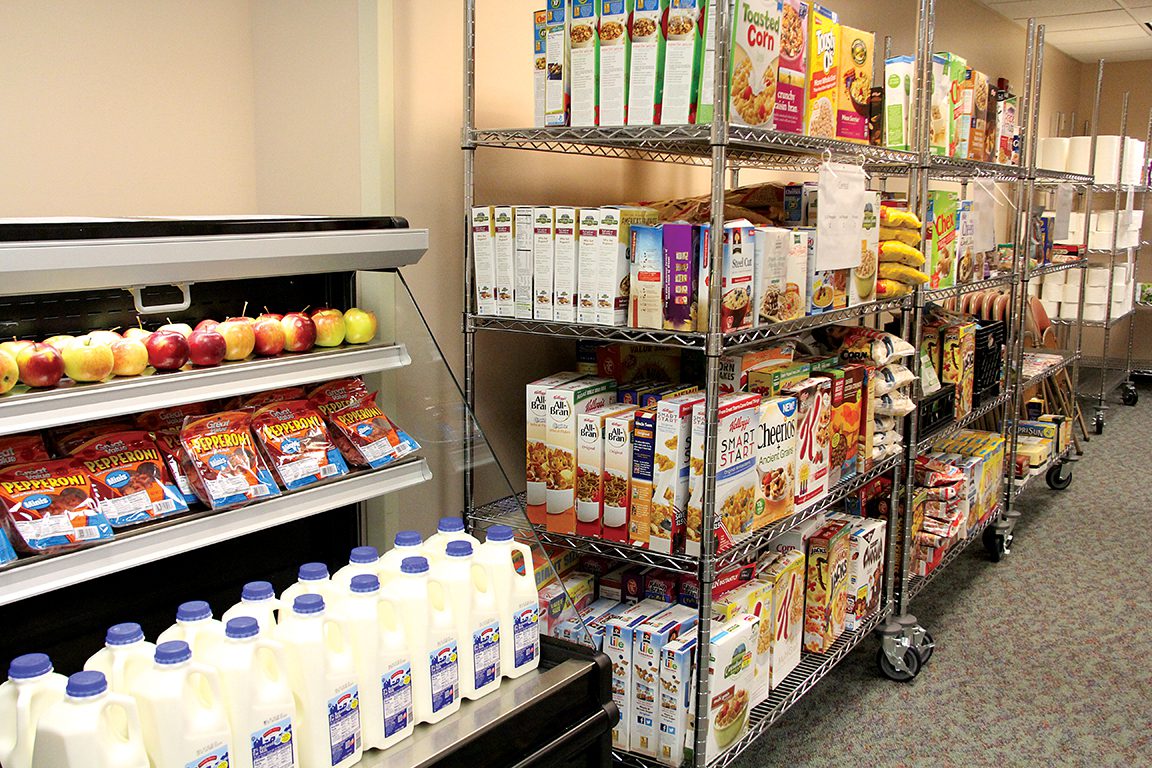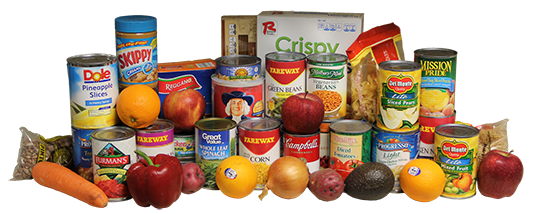Just How Food Pantries Provide Crucial Resources for Family Members in Crisis
Food cupboards serve as a critical lifeline for households experiencing crisis by using not only food however additionally a variety of essential sources designed to support their lasting and immediate requirements. Understanding the diverse role of food kitchens raises vital inquiries about their influence and the more comprehensive community dynamics at play.
Understanding Food Instability
Food insecurity, a pressing problem affecting millions of households, refers to the absence of consistent accessibility to sufficient food for an energetic, healthy life. This condition can come from different elements, consisting of financial instability, joblessness, and rising living expenses, which restrict people' capacity to buy or get nourishing food. Families encountering food insecurity commonly rely on poor food resources, leading to bad nutritional choices and negative health and wellness results.
The ramifications of food insecurity extend beyond instant appetite. It can negatively affect children's development and growth, adding to cognitive and behavior issues. Adults experiencing food instability might encounter chronic health and wellness issues, such as excessive weight, diabetes, and cardio illness, as they resort to cheaper, much less healthy food alternatives.

Solutions Supplied by Food Pantries
Resolving food instability calls for a complex technique, and food kitchens play an essential role in offering immediate relief to family members in crisis. These essential services offer a variety of sources focused on reducing appetite and supporting overall wellness.
Mostly, food pantries disperse healthy food things, including fresh fruit and vegetables, canned products, and non-perishable things. Lots of pantries focus on healthy options, recognizing the value of correct nutrition in maintaining mental and physical health. Furthermore, some food cupboards use specialized programs catering to specific populaces, such as households with young kids or elders, guaranteeing that the one-of-a-kind dietary demands of these groups are met.
Along with food circulation, several kitchens provide auxiliary services, such as access to nourishment education and learning workshops, food preparation classes, and recipe-sharing efforts. These programs encourage family members to utilize and make enlightened options pantry resources properly. Additionally, some food kitchens team up with regional companies to offer support in areas like monetary proficiency, job training, and housing assistance, addressing the more comprehensive obstacles that add to food insecurity.
Through these comprehensive services, food pantries not only alleviate appetite but also foster durability and self-sufficiency in families encountering tough conditions.
The Value of Neighborhood Assistance
Neighborhood assistance is important in combating food insecurity, as it fosters a network of resources and help that extends past the instant offerings of food pantries. This collaborative structure involves neighborhood organizations, services, and volunteers that contribute time, funds, and items to enhance food cupboard operations and outreach initiatives.
When neighborhoods integrated, they develop a durable safeguard for family members in situation. Support from local organizations can result in contributions of surplus food and monetary contributions, which aid keep kitchen stocks and expand services. Furthermore, collaborations with schools and health and wellness companies can facilitate education and learning around nourishment and health, equipping households to make enlightened choices.
Furthermore, area participation urges a feeling of belonging and lowers the preconception commonly connected with looking for assistance. When people feel sustained by their neighbors, they are more probable to access food kitchen sources without concern or embarrassment. This communal method not just addresses instant needs yet likewise aids develop strength within households, cultivating long-term security. Ultimately, the relevance of neighborhood assistance can not be overemphasized; it is the backbone that strengthens the job of food cupboards and enhances their effect on those facing food insecurity.
How to Access Food Cupboard Resources
Accessing food cupboard resources can considerably ease the concerns encountered by family members in dilemma. To start, people looking for assistance must determine regional food cupboards, which are often provided on neighborhood service web sites or can be located through an easy net search (Food Pantry Lockhart). Several cupboards are associated with bigger organizations, such as the United Method or Feeding America, which can offer further guidance


Additionally, many food cupboards supply solutions beyond food circulation, such as dietary education and learning and references to various other social solutions. Households should ask about these extra resources when going to a pantry.
Effect On Family Members Wellness
The availability of food pantry resources plays a critical duty in improving the overall health of family members in crisis. Access to nutritious food alleviates instant appetite, which is foundational for physical health and wellness. When family members get adequate food assistance, they experience a decrease in anxiety relevant to food instability, enabling them to concentrate on other essential elements of their lives, such as employment and education.

The effect of food cupboards expands beyond the individual to the household unit. By making sure that fundamental nutritional requirements are satisfied, family members can engage extra totally in their day-to-days live, facilitating much better academic performance for youngsters and enhanced task security for adults (Food Pantry Lockhart). Inevitably, food cupboards function as vital lifelines, significantly contributing to the total wellness and strength of family members dealing with situation
Final Thought
Food cupboards serve read the article as important lifelines for households review experiencing situations by addressing instant food instability and advertising long-term security. With the arrangement of nutritious food, academic programs, and recommendations to additional services, these kitchens contribute considerably to the general wellness of families and individuals.
Food pantries serve as an essential lifeline for families experiencing situation by providing not only food however likewise an array of crucial sources made to support their immediate and long-term requirements.Mainly, food kitchens disperse healthy food products, including fresh produce, tinned products, and non-perishable things. Some food cupboards find this team up with neighborhood organizations to supply help in areas like economic proficiency, task training, and real estate support, addressing the broader obstacles that contribute to food insecurity.
Ultimately, the relevance of area assistance can not be overemphasized; it is the foundation that strengthens the job of food cupboards and boosts their influence on those dealing with food insecurity.
Food cupboards serve as important lifelines for households experiencing situations by dealing with prompt food insecurity and promoting long-lasting security.